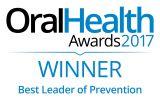
Fizzy Water and Your Teeth
For a long time the vital medical benefits of consuming good amounts of daily water have been known.

With so many drinks out there boasting some form of health related boost, simple tap water has been pushed a little into the background by its shiny ‘healthy’ alternatives.
Recently though, water has been fighting back. Becoming the solo focus on many health articles and indeed the backbone of many health plans.
With this resurgence, there is of course a commercial angle and many companies have jumped on the idea of making water more exciting, and so we come to the main focus of this article, fizzy or ‘sparkling’ water.
When it comes to the benefits and drawbacks of sparkling water, the leading question from a dentistry viewpoint is one of carbonation, and its potential damage to teeth and gums.
In this article we will seek to clear up the pluses and minuses of sparkling water and to take an honest look at the alternatives.
Teeth and the ‘fizz’ factor
The science behind carbonation:
Carbonation is formed by adding carbon dioxide to water in a pressurised environment of up to 12000 pounds per square inch. This slow, controlled release creates bubbles of carbon dioxide gas or ‘fizz’.
This carbon dioxide then remains carbon dioxide while it sits in your glass. Then, as we drink, it enters the bloodstream and its chemical state changes to become carbonic acid, it is this carbonic acid which theoretically presents a threat to tooth enamel.
So, it is actually a form of acid that is attacking our teeth, having entered the bloodstream and being pumped around.
Do not be alarmed though, the damage of fizzy water alone would appear to be small when well-managed, indeed there have been saturation tests comparing sparkling water and regular water on teeth erosion and surprisingly the erosion levels were actually very similar.
Based on this, it would seem that the real threat is that many of these ‘water’ replacements are jazzed up with flavourings and sweeteners such as Aspartame or Xylitol, both of which are present in many household items such as toothpaste and cough drops, and have been proven to affect general health when consumed in large quantities, and the teeth are not spared.
Lemon or Orange flavourings, particularly boasting fruit benefits and improved taste, are especially harmful due to their excessive acidity.
It is a good idea for your oral and overall health if these drinks and sweeteners can be cut from your diet, but if you really can't face giving them up, slight changes in how you drink can go some way to better protecting your teeth.
Protecting your teeth from sugary acids
Minimise your drinking time, having sparkling water with a meal can dilute the potential damage on your teeth
Avoid sipping, sipping causes a continued refresh of bacteria, a beverage consumed in one go has a much reduced effect.
Using a straw, this allows the acids and sugars to largely bypass the teeth
Do not swirl, swirling drinks in your mouth may feel refreshing but from a dentistry standpoint, it takes the harmful compounds into distant areas such as wisdom teeth and other hard to reach gaps, as well as keeping the acids in contact with the teeth for longer
Rinse after consumption
Rinsing with regular water is always a good idea, once again this dilutes and breaks up the acids and sugars, lessening the potential damage.
An overall assessment
There is now plenty of research to suggest that sparkling water is generally a reasonable option for your teeth as long as it is kept to small quantities, research methods are ever improving and more defined guidelines will come ever closer.
One certainty is that carbonated water is definitely better for us than anything high in sugar, sugary drinks that leap out at us from the shelves shouting their ‘high energy’ message are just bad in every way, and should definitely be avoided.
Even water alternatives with ‘low sugar’ are still a threat to dental health and should only be consumed at very limited levels, with the greater intake of our water consumption coming from natural processes and fluoridated water.
What is fluoridated water I hear you ask, that seems like work! Well, the good news is that water naturally contains fluoride so the fight against cavities begins by just turning on the tap.
Always read the ingredients
It is important to recognise the difference between products dressed up as ‘healthy’ but high in sugar and/or acids, and electrolyte based products that contain sodium, calcium, potassium, magnesium, chlorides and phosphates. The latter are all essential minerals for health and many of these products are a great option.
It can be tricky but a little product discipline can go a long way to helping your everyday health.
One key culprit to watch for is the ‘Citrus’ water options, these are often labelled to promote their benefits, without highlighting their pitfalls, so special care should be taken when considering these.
More water alternatives
As mentioned, the two most damaging elements for teeth are sugar and acid, and there are a few other standout products which we may take for granted as being healthy which are in fact, not.
Soda water for example often has high levels of sugar, and where there is sugar, cavities and tooth decay can swiftly follow, plus increased acidity contributes to teeth erosion, making the teeth and gums weaker and more vulnerable.
Tonic water contains quinine, used to give water a distinctive bitter flavour, and promoted as a health benefit. Indeed quinine can be very effective against malaria, but beyond this has no noted health benefits.
Tonic water also often contains added sugars which actually present an even greater threat than soda water.
And finally, mineral water, a reasonable option but acid content can still be present so it's always a good idea to read the ingredients.
Sports drinks are at the other end of the healthy spectrum, these are known to be extremely erosive to our teeth as well as just generally being bad for overall health, so be very mindful of advertising slogans that promote increased energy, always read the ingredients to see where that energy is coming from, if it's sugar, then from a dental perspective, we advise going to the next fridge.
Summary
Beyond the presented guidelines, hard and fast rules are difficult to state, but a sensible approach if you do like some fizz in your water is to stick to the unsweetened and unflavoured brands, such as spindrift and highland spring.
If you actually like water, or just don’t dislike it, just normal fluoride based tap or spring water is the healthiest choice of all.
Aside from water, there is little better for your teeth than milk, once again, consider all the healthful and harmful benefits of milk before consuming it in large quantities, but calcium is fantastic for continued strong teeth and bones.
Not just a dentist
Here at Life Dental and Wellbeing, we look at health as an overall proposition. So often dental health is a function of overall wellbeing and vice versa.
Our team of experts are well equipped to identify the source of your dental concerns and provide bespoke solutions tailored to your exact oral profile.
Please visit our website at lifedentalandwellbeing.co.uk, or call today to book an initial consultation and take your first step to improved wellbeing.




